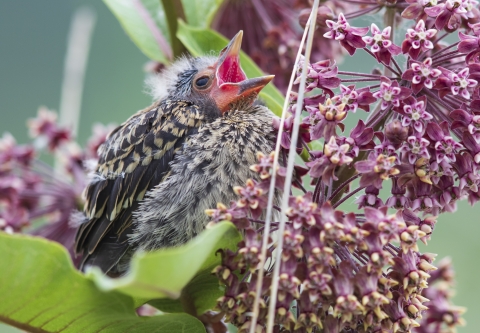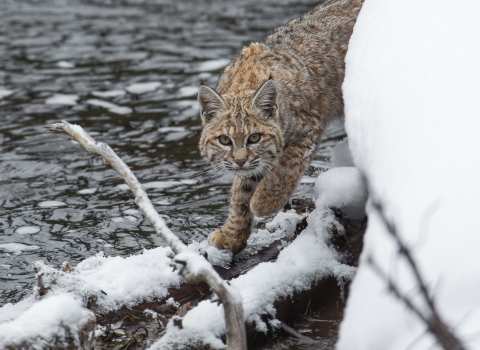A New Generation of Wildlife
As the sunny days lure you outside, you may come across young wildlife on your property, including goslings, ducklings, bunnies and fawns. Spring is a vulnerable time for these youngsters, as they can be smaller and less mobile during the first few weeks of their lives. Some animals, such as white-tailed deer and eastern cottontail rabbits, leave their young in a safe space while they go searching for food. While we may be tempted to help these cute little animals, the best way to protect these babies is to leave them be! You can monitor them from a distance and wait for the parent to return. If it's been several hours or the baby is calling out in distress with no response, only then should you contact a permitted wildlife rehabilitator. Similarly, if you believe that the adult has abandoned them, call a wildlife rehabilitator for next steps.
Found a Baby Bird?
Another common animal you may come across in the spring are baby birds. If you spot a baby bird on the ground, your first step is to determine whether it is a just-hatched nestling or a teenage fledgling. A nestling will have minimal feathering and will not move around much, where a fledgling will be mostly feathered and will awkwardly hop around. If you find a nestling, you may gently return it to their nest. Don't worry that your scent will prevent the parent from taking care of the bird, as this is a myth. If you find a fledgling, leave it alone, as it has a better chance of learning to hop around, fly and find its own food without your intervention.
Next Steps
If you have any questions or concerns regarding any young wildlife you come across, please contact the Wildlife Rehabilitation Center in Roseville (651-486-9453). They are permitted by the Minnesota Department of Natural Resources and specialize in taking care of orphaned or injured animals. Unless the animal is injured or obviously sick, please call prior to bringing them in. If nothing is wrong, it's always better for the animal to stay where you found it. Learn more by reading What to do if you find a baby bird, injured or orphaned wildlife!






